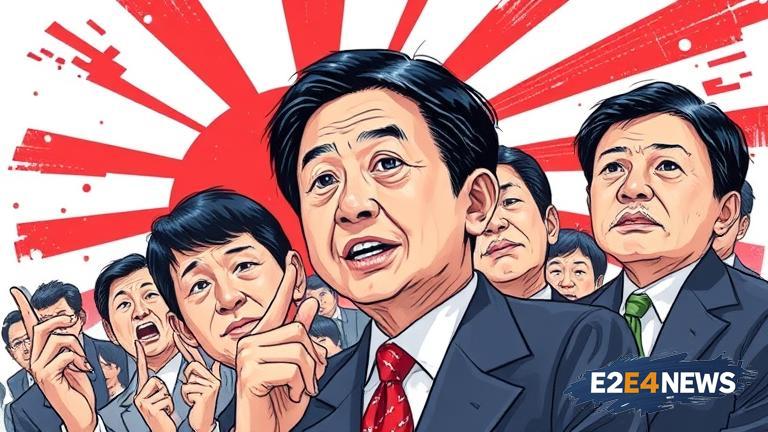The Nippon Ishin party, a major force in Japanese politics, is facing a severe crisis as several key members, including former Democratic Party leader Seiji Maehara, have tendered their resignations. The party’s leader, Nobuyuki Baba, has accepted the resignations, citing the need for a fresh start and a renewed commitment to the party’s founding principles. The resignations come amidst internal conflicts and power struggles within the party, which have been simmering for months. Maehara, a veteran politician and former foreign minister, had been a key figure in the party’s leadership, but his relationship with Baba had become increasingly strained. The two had disagreed on a range of issues, including the party’s stance on constitutional reform and its approach to coalition building. The resignations are seen as a major blow to the party, which had been gaining momentum in recent years. Nippon Ishin had been polling well, and its message of reform and change had resonated with many voters. However, the party’s internal divisions and lack of clear direction had begun to take a toll. The resignations of Maehara and other key members are likely to lead to a period of soul-searching and reflection within the party. Baba has pledged to rebuild and revitalize the party, but the task ahead will be daunting. The party’s supporters are likely to be disappointed and disillusioned by the resignations, and the party’s opponents will likely seize on the crisis as evidence of Nippon Ishin’s instability. The Japanese political landscape is highly competitive, and the Nippon Ishin party faces intense competition from other parties, including the ruling Liberal Democratic Party. The party’s crisis comes at a time when Japan is facing a range of challenges, including a stagnant economy, an aging population, and rising tensions with neighboring countries. The Nippon Ishin party had been seen as a potential force for change and reform, but its internal divisions and lack of clear direction have raised questions about its ability to deliver. The party’s leadership will need to move quickly to address the crisis and restore confidence among its supporters. This will require a clear and compelling vision for the party’s future, as well as a commitment to transparency and accountability. The party’s members will need to put aside their differences and work together to rebuild and revitalize the party. The Japanese people will be watching closely to see how the party responds to the crisis, and whether it can emerge stronger and more united than before. The Nippon Ishin party’s crisis is a reminder that politics is a complex and unpredictable business, and that even the most promising parties can face unexpected challenges and setbacks. Despite the challenges ahead, the party’s leader, Nobuyuki Baba, remains optimistic about the party’s future, and is committed to rebuilding and revitalizing the party. The party’s supporters will be hoping that Baba can deliver on his promises, and that the party can emerge from the crisis stronger and more united than before. The coming weeks and months will be crucial for the Nippon Ishin party, as it seeks to navigate the crisis and restore its reputation as a force for change and reform in Japanese politics.





